526 start with P start with P
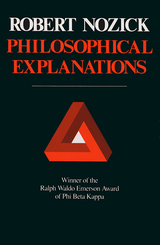
In this highly original work, Robert Nozick develops new views on philosophy’s central topics and weaves them into a unified philosophical perspective. It is many years since a major work in English has ranged so widely over philosophy’s fundamental concerns: the identity of the self, knowledge and skepticism, free will, the question of why there is something rather than nothing, the foundations of ethics, the meaning of life.
Writing in a distinctive and personal philosophical voice, Mr. Nozick presents a new mode of philosophizing. In place of the usual semi-coercive philosophical goals of proof, of forcing people to accept conclusions, this book seeks philosophical explanations and understanding, and thereby stays truer to the original motivations for being interested in philosophy.
Combining new concepts, daring hypotheses, rigorous reasoning, and playful exploration, the book exemplifies how philosophy can be part of the humanities.
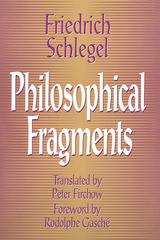
Philosophical Fragments was first published in 1991. Minnesota Archive Editions uses digital technology to make long-unavailable books once again accessible, and are published unaltered from the original University of Minnesota Press editions.
At a time when the function of criticism is again coming under close skeptical scrutiny, Schlegel's unorthodox, highly original mind, as revealed in these foundational "fragments," provides the critical framework for reflecting on contemporary experimental texts.
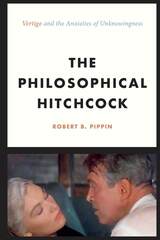
A bold, brilliant exploration of one of the most admired works of cinema, The Philosophical Hitchcock will lead philosophers and cinephiles alike to a new appreciation of Vertigo and its meanings.

Unlike analytic philosophy, a discipline supposedly liberated from any manifestation of cultural memory, the movement represented by these essays demonstrates how the inquiries, narratives, traditions, and events of our cultural past can mediate some of the most interesting exercises of the present-day philosophical imagination. Attesting to the power of historical tradition to enhance and redirect the prospects of philosophy these essays exemplify a new mode of doing philosophy.
The product of a National Endowment for the Humanities Summer Institute in 1990, it is the task of this book to show that history can be reclaimed by philosophy and resurrected in postmodernity.
Contributors. George Allan, Eva T. H. Brann, Arthur C. Danto, Lynn S. Joy, George L. Kline, George R. Lucas, Jr., Alasdair MacIntyre, Robert C. Neville, John Rickard, Stanley Rosen, J. B. Scheenwind, Donald Phillip Verene
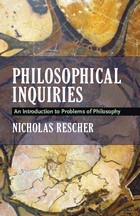
Among his many topics, Rescher discusses knowledge and the unattainablity of absolutes, skepticism and its self-defeating nature, the limits of science vs. the limits of cognition, refuting reality as mind-independent, and idealism and divining our role in nature. He considers the universe and intelligence as the product of intelligent design, science and religion as non-conflicting and purposeful pursuits, and determinism and other fallacies surrounding the concept of free will. Rescher views morality in its hierarchal structure, its applicability to human coexistence, and its ontological commitment to the enhancement of value for ourselves and our world. He examines questions of authority and the problem of judging past actions or knowledge by present standards. Overall, he argues for philosophy as an unavoidable tool for rational, cogent responses to large questions.

The surprising roles of instruments and experimentation in acquiring knowledge
In Philosophical Instruments Daniel Rothbart argues that our tools are not just neutral intermediaries between humans and the natural world, but are devices that demand new ideas about reality. Just as a hunter's new spear can change their knowledge of the environment, so can the development of modern scientific equipment alter our view of the world.
Working at the intersections of science, technology, and philosophy, Rothbart examines the revolution in knowledge brought on by recent advances in scientific instruments. Full of examples from historical and contemporary science, including electron scanning microscopes, sixteenth-century philosophical instruments, and diffraction devices used by biochemical researchers, Rothbart explores the ways in which instrumentation advances a philosophical stance about an instrument's power, an experimenter's skills, and a specimen's properties. Through a close reading of engineering of instruments, he introduces a philosophy from (rather than of) design, contending that philosophical ideas are channeled from design plans to models and from model into the use of the devices.
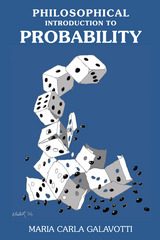
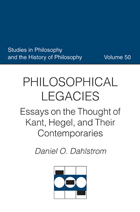
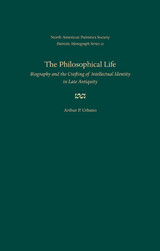
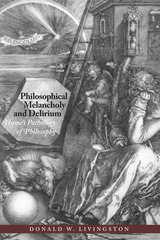
By demonstrating how a philosophical method can be used to expose the political motivations behind intellectual positions, historical events, and their subsequent interpretations, Livingston revitalizes Hume's thought and reveals its relevance for contemporary dicussions of politics, nationalism, and ideology for the first time.

A Platonic evangelist’s lectures on the good life.
Maximus of Tyre, active probably in the latter half of the second century AD, was a devoted Platonist whose only surviving work consists of forty-one brief addresses on various topics of ethical, philosophical, and theological import including the nature of divinity, the immortality of the soul, the sources of good and evil, the injustice of vengeance, the tyranny of pleasures and desires, the contribution of the liberal arts, and the pursuit of happiness, among many others. These addresses are conveniently labeled orations, but their fluid and hybrid style resists precise generic categorization, so that they could also be called discourses, speeches, lectures, talks, inquiries, essays, or even sermons.
In his orations Maximus strove to elucidate the philosophical life of virtue, especially as exemplified in the career of Socrates and in the writings of Plato, inviting his audience, sometimes addressed as young men, to share in his knowledge, to appreciate his fresh presentation of philosophical topics, and perhaps even to join him in pursuing philosophy. Drawing on the Hellenic cultural tradition from Homer to the death of Alexander the Great, Maximus offers a rich collection of the famous philosophical, literary, and historical figures, events, ideas, successes, and failures that constituted Greek paideia in the so-called Second Sophistic era.
This edition of Maximus’ Philosophical Orations offers a fresh translation, ample annotation, and a text fully informed by current scholarship.

A Platonic evangelist’s lectures on the good life.
Maximus of Tyre, active probably in the latter half of the second century AD, was a devoted Platonist whose only surviving work consists of forty-one brief addresses on various topics of ethical, philosophical, and theological import including the nature of divinity, the immortality of the soul, the sources of good and evil, the injustice of vengeance, the tyranny of pleasures and desires, the contribution of the liberal arts, and the pursuit of happiness, among many others. These addresses are conveniently labeled orations, but their fluid and hybrid style resists precise generic categorization, so that they could also be called discourses, speeches, lectures, talks, inquiries, essays, or even sermons.
In his orations Maximus strove to elucidate the philosophical life of virtue, especially as exemplified in the career of Socrates and in the writings of Plato, inviting his audience, sometimes addressed as young men, to share in his knowledge, to appreciate his fresh presentation of philosophical topics, and perhaps even to join him in pursuing philosophy. Drawing on the Hellenic cultural tradition from Homer to the death of Alexander the Great, Maximus offers a rich collection of the famous philosophical, literary, and historical figures, events, ideas, successes, and failures that constituted Greek paideia in the so-called Second Sophistic era.
This edition of Maximus’ Philosophical Orations offers a fresh translation, ample annotation, and a text fully informed by current scholarship.

Volume 1 includes essays on Spinoza, Descartes, Bradley, Collingwood, Russell, Moore, and Popper, as well as two previously unpublished papers on the history of philosophy as a discipline, and on Ryle and Wittgenstein's nature of philosophy. Linked by Donagan's commitment to the central importance of history for philosophy and his interest in problems of historical understanding, these essays represent the remarkable scope of Donagan's thought.

Volume 2 addresses issues in the philosophy of action and moral theory. With papers on Kant, von Wright, Sellars, and Chisholm, this volume also covers a range of questions in applied ethics—from the morality of Truman's decision to drop atomic bombs on Hiroshima and Nagasaki to ethical questions in medicine and law.

Philosophical Perspectives on Metaphor was first published in 1981. Minnesota Archive Editions uses digital technology to make long-unavailable books once again accessible, and are published unaltered from the original University of Minnesota Press editions.
"We are," says Mark Johnson, "in the midst of metaphormania." The past few years have seen an explosion of interest in metaphor as a vehicle for exploring the relations between language and thought. While a number of recent books have dealt with metaphor from the standpoints of several disciplines, there is no collection that shows the best of the work that has been done in the field of philosophy. Mark Johnson has brought together essays that define the central issues of the discussion in this field.
His introductory essay offers a critical survey of historically influential treatments of figurative language (including those of Aristotle, Hobbes, Locke, Kant, and Nietzsche) and sets forth the nature of various issues that have been of interest to philosophers. Thus, it provides a context in which to understand the motivations, influences, and significance of the collected essays. An annotated bibliography serves as a catalog of all relevant literature.
Philosophical Perspectives on Metaphor provides an entry point into the philosophical exploration of metaphor for students, philosophers, linguists, psychologists, artists, critics, or anyone interested in language and its relation to understanding and experience.
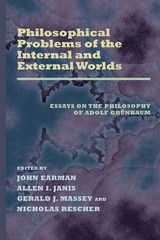
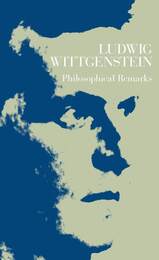
"[Philosophical Remarks] contains the seeds of Wittgenstein's later philosophy of mind and of mathematics. Principally, he here discusses the role of indispensable in language, criticizing Russell's The Analysis of Mind. He modifies the Tractatus's picture theory of meaning by stressing that the connection between the proposition and reality is not found in the picture itself. He analyzes generality in and out of mathematics, and the notions of proof and experiment. He formulates a pain/private-language argument and discusses both behaviorism and the verifiability principle. The work is difficult but important, and it belongs in every philosophy collection."—Robert Hoffman, Philosophy
"Any serious student of Wittgenstein's work will want to study his Philosophical Remarks as a transitional book between his two great masterpieces. The Remarks is thus indispensible for anyone who seeks a complete understanding of Wittgenstein's philosophy."—Leonard Linsky, American Philosophical Association
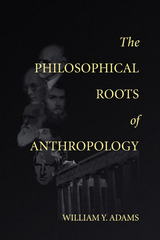
Like most anthropologists, Adams had previously accepted the premise that anthropology's intellectual roots go back no further than the moral philosophy of the Enlightenment, or perhaps at the earliest to the humanism of the Renaissance. In this volume, Adams recognizes that many good ideas were anticipated in antiquity and that these ideas have had a lasting influence on anthropological models in particular. He has chosen five philosophical currents whose influence has been, and is, very widespread, particularly in North American anthropology: progressivism, primitivism, natural law, German idealism, and "Indianology". He argues that the influences of these currents in North American anthropology occur in a unique combination that is not found in the anthropologies of other countries. Without neglecting the anthropologies of other countries, this work serves as the basis for the explanation of the true historical and philosophical underpinnings of anthropology and its goals.
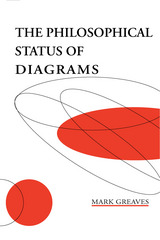
This book explores the reasons why structured graphics have been largely ignored in contemporary formal theories of axiomatic systems. In particular, it elucidates the systematic forces in the intellectual history of mathematics which have driven the adoption of sentential representational styles over diagrammatic ones. In this book, the effects of historical forces on the evolution of diagrammatically-based systems of inference in logic and geometry are traced from antiquity to the early twentieth-century work of David Hilbert. From this exploration emerges an understanding that the present negative attitudes towards the use of diagrams in logic and geometry owe more to implicit appeals to their history and philosophical background than to any technical incompatibility with modern theories of logical systems.
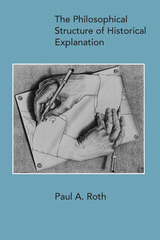
In The Philosophical Structure of Historical Explanation, Paul A. Roth resolves disputes persisting since the nineteenth century about the scientific status of history. He does this by showing why historical explanations must take the form of a narrative, making their logic explicit, and revealing how the rational evaluation of narrative explanation becomes possible. Roth situates narrative explanations within a naturalistic framework and develops a nonrealist (irrealist) metaphysics and epistemology of history—arguing that there exists no one fixed past, but many pasts. The book includes a novel reading of Thomas S. Kuhn’s The Structure of Scientific Revolutions, showing how it offers a narrative explanation of theory change in science. This book will be of interest to researchers in historiography, philosophy of history, philosophy of science, philosophy of social science, and epistemology.
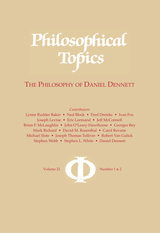
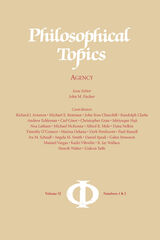
Luck Egalitarianism Interpreted and Defended
Richard J. Arneson
Three Theories of Self-Governance
Michael E. Bratman
Reflections on an Argument from Luck
Randolph Clarke
Responsibility for Character
Andrew Eshleman
Internally Doing and Intentionally Not Doing
Carl Ginet
Irreplaceability and Unique Value
Christopher Grau
Freedom, Hedonism, and the Intrinsic Value of Lives
Ishtiyaque Haji
Determinism, Randomness, and Value
Noa Latham
Responsibility and Globally Manipulated Agents
Michael McKenna
The Illusion of Conscious Will and the Causation of Intentional Actions
Alfred R.Mele
Deliberative Alternatives
Dana Nelkin
Reasons Explanation and Agent Control: In Search of an Integrated Account
Timothy O’Connor and John Ross Churchill
Moral Accountability
Marina Oshana
Is Our Conception of Agent-Causation Coherent?
Derk Pereboom
Responsibility and the Condition of Moral Sense
Paul Russell
Ignorance and Blame
Ira M. Schnall
Conflicting Attitudes,Moral Agency, and Conceptions of the Self
Angela M. Smith
Toward an Axiological Defense of Libertarianism
Daniel Speak
Free Agents
Galen Strawson
Libertarianism and Skepticism about Free Will: Some Arguments against Both
Manuel Vargas
Free Will Demystified: A Dispositional Account
Kadri Vihvelin
Constructing Normativity
R. Jay Wallace
Neurophilosophy of Moral Responsibility: The Case for Revisionist Compatibilism
Henrik Walter
Trying, Intending, and Attempted Crimes
Gideon Yaffe
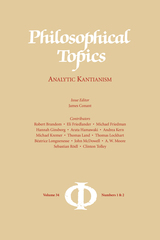
Issue Editor: James Conant
Contributors: Robert Brandom, Eli Friedlander, Michael Friedman, Hannah Ginsborg, Arata Hamawaki, Andrea Kern, Michael Kremer, Thomas Land, Thomas Lockhart, Béatrice Longuenesse, John McDowell, A.W. Moore, Sebastian Rödl, and Clinton Tolley.
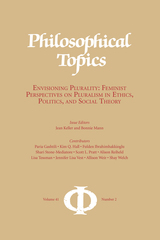
Contents:
Why a Feminist Volume on Pluralism? – Bonnie Mann and Jean Keller
PLURALISM ’S FAILURES AND CERTAIN CONDITIONS FOR THE POSSIBILITY OF SUCCESS
Indigenous Agencies and the Pluralism of Empire – Scott L. Pratt
What Would Philosophic Pluralism Look Like?: True Dialogue, Epistemic Credibility, Rational Parity, and Death in the University – Jennifer Lisa Vest
Asking Too Much? Civility vs. Pluralism – Alison Reiheld
Attending to Others: Simone Weil and Epistemic Pluralism – Shari Stone-Mediatore
FEMINIST PLURALISM AND RELIGIOUS WORLDVIEWS
Islamic Feminisms and Freedom – Allison Weir
Is an “Islamic Feminism” Possible?: Gender Politics in the Contemporary Islamic Republic of Iran – Paria Gashtili
Beyond the Modern/Religious Dichotomy: The Veil and Feminist Solidarity in Contemporary Turkey – Fulden Ibrahimhakkioglu
Philosophy, Religion, Race, and Queerness: A Question of Accommodation or Access – Kim Q. Hall
FEMINIST PLURALISM AND FUNDAMENTAL VALUES
Value Pluralism, Intuitions, and Reflective Equilibrium – Lisa Tessman
Radical-cum-Relation: Bridging Feminist Ethics and Native Individual Autonomy – Shay Welch
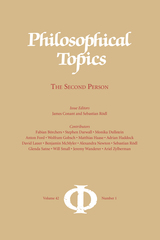
Contents:
Introduction – James Conant and Sebastian Rödl
THE FUNDAMENTAL CHARACTER OF THE SECOND PERSON AS A FORM OF CONSCIOUSNESS
Action and Passion – Anton Ford
What Binds Us Together: Normativity and the Second Person – Glenda Satne
Alethic Holdings – Jeremy Wanderer
THE SECOND PERSON AS A FORM OF PRACTICAL CONSCIOUSNESS
The Transmission of Skill – Will Small
For Oneself and Toward Another: The Puzzle about Recognition – Matthias Haase
THE SECOND PERSON AS THE FORM OF PRIVATE LAW
The Very Thought of (Wronging) You – Ariel Zylberman
The Idea of an Ethical Community: Kant and Hegel on the Necessity of Human Evil and the Love to Overcome It – Wolfram Gobsch
The Social and the Sociable – Stephen Darwall
THE PLACE OF THE SECOND PERSON IN THEORETICAL KNOWLEDGE
Theoretical Anarchism – Benjamin McMyler
Darwall on Action and the Idea of a Second-Personal Reason – Fabian Börchers
Kant on Testimony and the Communicability of Empirical Knowledge – Alexandra Newton
Testimony and Generality – Sebastian Rödl
ADDRESS AND ACKNOWLEDGMENT
Understanding Others in Social Interactions – Monika Dullstein
What Is It to Know Someone? – David Lauer
On Address – Adrian Haddock
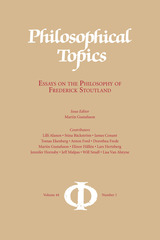
Contents:
Introduction – Martin Gustafsson
Self-Awareness and Cognitive Agency in Descartes’s Meditations – Lilli Alanen
Why an Aristotelian Account of Truth Is (More or Less) All We Need – Jeff Malpas
The Social Aspects of Aristotle’s Theory of Action – Dorothea Frede
Voluntarism, Intellectualism, and Anselm on Motivation – Tomas Ekenberg
Why Kant is not a Kantian – James Conant
“A Contrast between Two Pictures”: The Case of Perception – Jennifer Hornsby
On What Is in Front of Your Nose – Anton Ford
Expression and Self-Consciousness – Stina Bäckström
Bodily Movement and Its Significance – Will Small
Anscombe’s Bird, Wittgenstein’s Cat: Intention, Expression, and Convention – Martin Gustafsson
Film Noir and Weakly Intentional Actions: An Anscombian Analysis – Elinor Hållén
Theory, Interpretation, and Law: Some Worries about Dworkin’s Account of Their Relation – Lisa Van Alstyne
Stoutland vs. Metaphysics – Lars Hertzberg
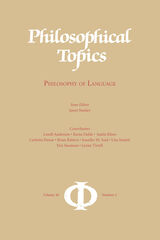
Contributors: Luvell Anderson, Keota Fields, Justin Khoo, Carlotta Pavese, Brian Rabern, Jennifer M. Saul, Una Stojnic, Eric Swanson, Lynne Tirrell
Contents:
Hermeneutical Impasses – Luvell Anderson
Intensional Liar – Keota Fields
Code Words in Political Discourse – Justin Khoo
A Theory of Practical Meaning – Carlotta Pavese
Racial Figleaves, the Shifting Boundaries of the Permissible, and the Rise of Donald Trump – Jennifer M. Saul
Omissive Implicature – Eric Swanson
Toxic Speech: Toward an Epidemiology of Discursive Harm – Lynne Tirrell
SYMPOSIUM ON TWO DIMENSIONAL SEMANTICS
On the Connection between Semantic Content and the Objects of Assertion – Una Stojnić
A Bridge from Semantic Value to Content – Brian Rabern
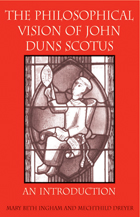
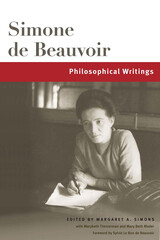
Beauvoir's philosophical work suffers from a lack of English-language translation or, worse, mistranslation into heavily condensed popular versions. Philosophical Writings provides an unprecedented collection of complete, scholarly editions of philosophical texts that cover the first twenty-three years of Beauvoir's career, including a number of recently discovered works. Ranging from metaphysical literature to existentialist ethics, Philosophical Writings brings together diverse elements of Beauvoir's work while highlighting continuities in the development of her thought. Each of the translations features detailed notes and a scholarly introduction explaining its larger significance.
Revelatory and long overdue, Philosophical Writings adds to the ongoing resurgence of interest in Beauvoir's thought and to her growing influence on today's philosophical curriculum.
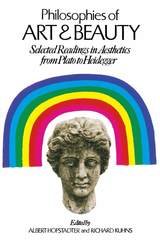

En effet, bien que les œuvres de ces deux auteurs soient singulières, l’une et l’autre procèdent d’une même exigence qui les place au centre de la tradition philosophique : produire un système conceptuel qui donne à penser la nouveauté de la situation historique. À quoi bon la cohérence d’une philosophie qui ne nous dirait rien de ce qu’est devenu le monde ? Que vaudrait l’abstraction conceptuelle si celle-ci n’était pas au service de la compréhension de ce qui nous transforme ? Ainsi, les deux auteurs nous appellent à ne pas oublier : l’enjeu de la philosophie n’est pas la philosophie. Cette exigence critique, la présente conversation la réfléchit à bras le corps, non sans détours et tourments, mais avec franchise et esprit de liberté.

John Roberts argues that this understanding of the everyday downgrades its revolutionary meaning and philosophical implications. Bringing radical political theory back to the centre of the discussion, he shows how notions of cultural democratization have been oversimplified. Asserting that the everyday should not be narrowly identified with the popular, Roberts critiques the way in which the concept is now overly associated with consumption and 'ordinariness'.
Engaging with the work of key thinkers including, Lukács, Arvatov, Benjamin, Lefebvre, Gramsci, Barthes, Vaneigem, and de Certeau, Roberts shows how the concept of the everyday continues to be central to debates on ideology, revolution and praxis. He offers a lucid account of different approaches that developed over the course of the twentieth century, making this an ideal book for anyone looking for a politicised approach to cultural theory.
John Roberts is a Senior Research Fellow in Fine Art at the University of Wolverhampton. He is the author of The Art of Interruption: Realism, Photography and the Everyday (Manchester University Press, 1997) and The Philistine Controversy (Verso, with Dave Beech, 2002), plus other books and numerous articles, in Radical Philosophy and elsewhere.
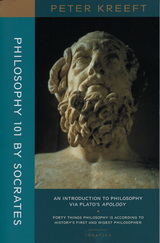
“If only every introductory course were as engaging as Philosophy 101 by Peter Kreeft! Kreeft offers a marvelous way of using Plato’s Apology both to introduce the whole scope of philosopher and to evoke a personal response. Even the diffident freshman, prone to keeping a new subject like philosopher as arm’s length, will feel the enchantment of love-for-wisdom that philosophy is supposed to be.” – Joseph W. Koterski, S.J., chair, Department of Philosophy, Fordham University
“A terrific introduction to philosophy through this not uncontroversial commentary on Plato’s Apology. Not everyone will agree that Socrates provided the best possible defense for himself nor that he intended to. But Kreeft’s is an eminently defensible reading of the Apology and will awaken many a student to the delights of Plato and Philosophy. The comparisons of Socrates with Christ are fascinating. This book will go a long way to consoling those who are not privileged to have Socrates or Kreeft as teachers in the flesh.” – Janet Smith, Sacred Heart Major Seminary, Detroit
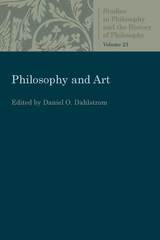
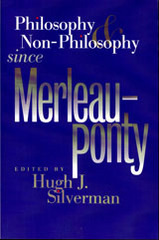
Included in this volume is Silverman's translation of Merleau-Ponty's last course at the Collège de France in 1960-61 and an extensive research bibliography. Originally published in 1988, Philosophy and Non-Philosophy since Merleau-Ponty is a fascinating inquiry into the developments, directions, and ruptures in Continental philosophy since Merleau-Ponty's death in 1961.
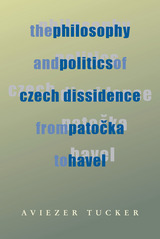
A critical study of the philosophy and political practice of the Czech dissident movement Charter 77. Aviezer Tucker examines how the political philosophy of Jan Patocka (1907–1977), founder of Charter 77, influenced the thinking and political leadership of Vaclav Havel as dissident and president.
Presents the first serious treatment of Havel as philosopher and Patocka as a political thinker. Through the Charter 77 dissident movement in Czechoslovakia, opponents of communism based their civil struggle for human rights on philosophic foundations, and members of the Charter 77 later led the Velvet Revolution. After Patocka’s self-sacrifice in 1977, Vaclav Havel emerged a strong philosophical and political force, and he continued to apply Patocka’s philosophy in order to understand the human condition under late communism and the meaning of dissidence. However, the political/philosophical orientation of the Charter 77 movement failed to provide President Havel with an adequate basis for comprehending and responding to the extraordinary political and economic problems of the postcommunist period.
In his discussion of Havel's presidency and the eventual corruption of the Velvet Revolution, Tucker demonstrates that the weaknesses in Charter 77 member's understanding of modernity, which did not matter while they were dissidents, seriously harmed their ability to function in a modern democratic system. Within this context, Tucker also examines Havel’s recent attempt to topple the democratic but corrupt government in 1997–1998. The Philosophy and Politics of Czech Dissidence from Patocka to Havel will be of interest to students of philosophy and politics, scholars and students of Slavic studies, and historians, as well as anyone fascinated by the nature of dissidence.

Philosophy and the Young Child presents striking evidence that young children naturally engage in a brand of thought that is genuinely philosophical. In a series of exquisite examples that could only have been gathered by a professional philosopher with an extraordinary respect for young minds, Gareth Matthews demonstrates that children have a capacity for puzzlement and mental play that leads them to tackle many of the classic problems of knowledge, value, and existence that have traditionally formed the core of philosophical thought. Matthews’s anecdotes reveal children reasoning about these problems in a way that must be taken seriously by anyone who wants to understand how children think.
Philosophy and the Young Child provides a powerful antidote to the widespread tendency to underestimate children’s mental ability and patronize their natural curiosity. As Matthews shows, even child psychologists as insightful as Piaget have failed to grasp the subtlety of children’s philosophical frame of mind. Only in children’s literature does Matthews find any sensitivity to children’s natural philosophizing. Old favorites like Winnie the Pooh, the Oz books, and The Bear That Wasn’t are full of philosophical puzzlers that amuse and engage children. More important, these stories manage to strip away the mental defensiveness and conventionality that so often prevent adults from appreciating the way children begin to think about the world.
Gareth Matthews believes that adults have much to gain if they can learn to “do philosophy” with children, and his book is a rich source of useful suggestions for parents, teachers, students, and anyone else who might like to try.
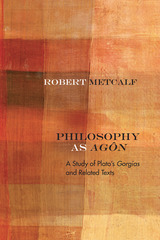
Metcalf challenges prevailing interpretations according to which the agôn (contest or struggle) between the interlocutors in the dialogues is inessential to Plato's philosophical purpose, or simply a reflection of the cultural background of ancient Greek life. Instead, he argues that Plato understands philosophy as essentially agonistic—involving the adversarial engagement of others in dialogue such that one's integrity is put to the test through this engagement, and where the agôn is structured so as to draw adversaries together in agreement about the matters at issue, though that agreement is always open to future contest.
Based on a careful reading of the Gorgias and related Socratic dialogues, such as Apology and Theaetetus, Metcalf contends that agôn is indispensable to the critique of prevailing opinions, to the transformation of the interlocutor through shame-inducing refutation, and to philosophy as a lifelong training (askêsis) of oneself in relation to others.
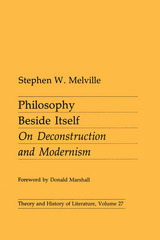
Philosophy Beside Itself was first published in 1986. Minnesota Archive Editions uses digital technology to make long-unavailable books once again accessible, and are published unaltered from the original University of Minnesota Press editions.
The writings of French philosopher Jacques Derrida have been the single most powerful influence on critical theory and practice in the United States over the past decade. But with few exceptions American philosophers have taken little or no interest in Derrida's work, and the task of reception, translation, and commentary has been left to literary critics. As a result, Derrida has appeared as a figure already defined by essentially literary critical activities and interests.
Stephen Melville's aim in Philosophy Beside Itself is to insist upon and clarify the distinctions between philosophy and criticism. He argues that until we grasp Derrida's philosophical project as such, we remain fundamentally unable to see his significance for criticism. In terms derived from Stanley Cavell's writings on modernism, Melville develops a case for Derrida as a modernist philosopher, working at once within and against that tradition and discipline.
Melville first places Derrida in a Hegelian context, the structure of which he explores by examining the work of Heidegger, Lacan, and Bataille. With this foundation, he is able to reappraise the project of deconstructive criticism as developed in Paul de Man's Blindness and Insight and further articulated by other Yale critics. Central to this critique is the ambivalent relationship between deconstructive criticism and Lacanian psychoanalysis. Criticism—radical self-criticism—is a central means through which the difficult facts of human community come to recognition, and Melville argues for criticism as an activity intimately bound to the ways in which we do and do not belong in time and in community. Derrida's achievement has been to find a new and necessary way to assert that the task of philosophy is criticism; the task of literary criticism is to assume the burden of that achievement.
Stephen Melville is an assistant professor of English at Syracuse University, and Donald Marshall is a professor of English at the University of Iowa.
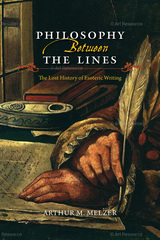
Arthur M. Melzer serves as our deeply knowledgeable guide in this capacious and engaging history of philosophical esotericism. Walking readers through both an ancient (Plato) and a modern (Machiavelli) esoteric work, he explains what esotericism is—and is not. It relies not on secret codes, but simply on a more intensive use of familiar rhetorical techniques like metaphor, irony, and insinuation. Melzer explores the various motives that led thinkers in different times and places to engage in this strange practice, while also exploring the motives that lead more recent thinkers not only to dislike and avoid this practice but to deny its very existence. In the book’s final section, “A Beginner’s Guide to Esoteric Reading,” Melzer turns to how we might once again cultivate the long-forgotten art of reading esoteric works.
Philosophy Between the Lines is the first comprehensive, book-length study of the history and theoretical basis of philosophical esotericism, and it provides a crucial guide to how many major writings—philosophical, but also theological, political, and literary—were composed prior to the nineteenth century.
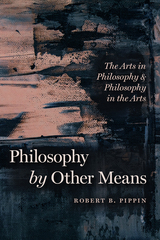
The arts hold a range of values and ambitions, offering beauty, playfulness, and craftsmanship while deepening our mythologies and enriching the human experience. Some works take on philosophical ambitions, contributing to philosophy in ways that transcend the discipline’s traditional analytic and discursive forms. Pippin’s claim is twofold: criticism properly understood often requires a form of philosophical reflection, and philosophy is impoverished if it is not informed by critical attention to aesthetic objects. In the first part of the book, he examines how philosophers like Kant, Hegel, and Adorno have considered the relationship between art and philosophy. The second part of the book offers an exploration of how individual artworks might be considered forms of philosophical reflection. Pippin demonstrates the importance of practicing philosophical criticism and shows how the arts can provide key insights that are out of reach for philosophy, at least as traditionally understood.
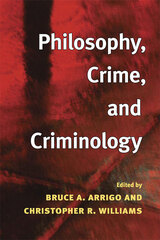
Charting a provocative and original direction, editors Bruce A. Arrigo and Christopher R. Williams couple theoretically oriented chapters with those centered on application and case study. In doing so, they develop an insightful, sensible, and accessible approach for a philosophical criminology in step with the political and economic challenges of the twenty-first century. Revealing the ways in which philosophical conceits inform prevailing conceptions of crime, Philosophy, Crime, and Criminology is required reading for any serious student or scholar concerned with crime and its impact on society and in our lives.
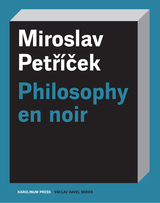
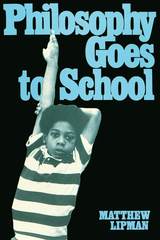
Ten years ago Philosophy in the Classroom, by Lipman, Sharp, and Oscanyan, hailed the emergence of philosophy as a novel, although in some ways highly traditional, elementary school discipline. In this sequel, Matthew Lipman examines the impact that elementary school philosophy has had, and may yet have, upon the process of education. Going beyond his earlier work to describe the contribution that training in philosophy can make in the teaching of values, he shows the applications of ethics in civics education and the ways in which aesthetics can be incorporated into areas of the curriculum related to the development of creativity.
Making reference to the contemporary educational scene, Lipman compares the K-12 Philosophy for Children curriculum to the many unsatisfactory solutions being offered in our current drive for educational excellence. He addresses the relationship of elementary school philosophy to educational reform in the areas of science, language, social studies, and writing. And he shows how philosophy can be instrumental in the difficult task of teaching values to children while avoiding both ideological indoctrination and mindless relativism.
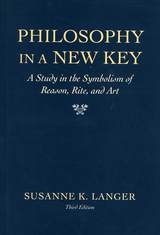
Modern theories of meaning usually culminate in a critique of science. This book presents a study of human intelligence beginning with a semantic theory and leading into a critique of music.
By implication it sets up a theory of all the arts; the transference of its basic concepts to other arts than music is not developed, but it is sketched, mainly in the chapter on artistic import. Thoughtful readers of the original edition discovered these far-reaching ideas quickly enough as the career of the book shows: it is as applicable to literature, art and music as to the field of philosophy itself.
The topics it deals with are many: language, sacrament, myth, music, abstraction, fact, knowledge--to name only the main ones. But through them all goes the principal theme, symbolic transformation as the essential activity of human minds. This central idea, emphasizing as it does the notion of symbolism, brings Mrs. Langer's book into line with the prevailing interest in semantics. All profound issues of our age seem to center around the basic concepts of symbolism and meaning. The formative, creative, articulating power of symbols is the tonic chord which thinkers of all schools and many diverse fields are unmistakably striking; the surprising, far-reaching implications of this new fundamental conception constitute what Mrs. Langer has called "philosophy in a new key."
Mrs. Langer's book brings the discussion of symbolism into a wider general use than criticism of word meaning. Her volume is vigorous, effective, and well written and will appeal to everyone interested in the contemporary problems of philosophy.

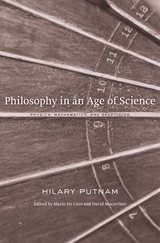
Hilary Putnam’s unceasing self-criticism has led to the frequent changes of mind he is famous for, but his thinking is also marked by considerable continuity. A simultaneous interest in science and ethics—unusual in the current climate of contention—has long characterized his thought. In Philosophy in an Age of Science, Putnam collects his papers for publication—his first volume in almost two decades.
Mario De Caro and David Macarthur’s introduction identifies central themes to help the reader negotiate between Putnam past and Putnam present: his critique of logical positivism; his enduring aspiration to be realist about rational normativity; his anti-essentialism about a range of central philosophical notions; his reconciliation of the scientific worldview and the humanistic tradition; and his movement from reductive scientific naturalism to liberal naturalism. Putnam returns here to some of his first enthusiasms in philosophy, such as logic, mathematics, and quantum mechanics. The reader is given a glimpse, too, of ideas currently in development on the subject of perception.
Putnam’s work, contributing to a broad range of philosophical inquiry, has been said to represent a “history of recent philosophy in outline.” Here it also delineates a possible future.
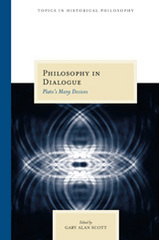
The essays gathered here each examine vital aspects of Plato’s many methods, considering his dialogues in relation to Thucydides and Homer, narrative strategies and medical practice, images and metaphors. They offer surprising new research into such much-studied works as The Republic as well as revealing views of lesser-known dialogues like the Cratylus and Philebus. With reference to thinkers such as Heidegger, Gadamer, and Sartre, the authors place the Platonic dialogues in an illuminating historical context. Together, their essays should reinvigorate the scholarly examination of the way Plato’s dialogues “work”—and should prompt a reconsideration of how the form of Plato’s philosophical writing bears on the Platonic conception of philosophy.
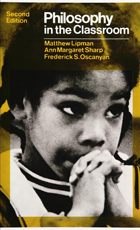
This is a textbook for teachers that demonstrates how philosophical thinking can be used in teaching children. It begins with the assumption that what is taught in schools is not (and should not be) subject matter but rather ways of thinking. The main point is that the classroom should be converted into a community of inquiry, and that one can begin doing that with children. Based on the curriculum that Matt Lipman has developed at the Institute for the Advancement of Philosophy for Children, which he heads, this book describes the curriculum and explains its use. The text is self-contained, however.
This revision is thorough-going and incorporates new chapters, as well as new material in old chapters. Part One focuses on the need of educational change and the importance of philosophical inquiry in developing new approaches. Part Two discusses curriculum and teaching methodology, including teacher behavior conducive to helping children. Part Three deals with developing logic skills and moral judgment. It concludes with a chapter on the sorts of philosophical themes pertinent to ethical inquiry for children: the right and the fair, perfect and right, free will and determinism, change and growth, truth, caring, standards and rules, thinking and thinking for oneself. Education, in this sense, is not a matter of dispensing information; it is the process of assisting in the growth of the whole individual.
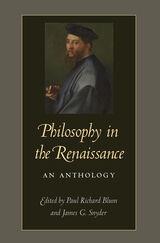

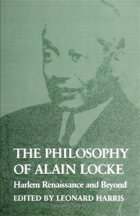
This collection of essays by American philosopher Alain Locke (1885-1954) makes readily available for the first time his important writings on cultural pluralism, value relativism, and critical relativism. As a black philosopher early in this century, Locke was a pioneer: having earned both undergraduate and doctoral degrees at Harvard, he was a Rhodes scholar at Oxford, studied at the University of Berlin, and chaired the Philosophy Department at Howard University for almost four decades. He was perhaps best known as a leading figure in the Harlem Renaissance.
Locke’s works in philosophy—many previously unpublished—conceptually frame the Harlem Renaissance and New Negro movement and provide an Afro-American critique of pragmatism and value absolutism, and also offer a view of identity, communicative competency, and contextualism. In addition, his major works on the nature of race, race relations, and the role of race-conscious literature are presented to demonstrate the application of his philosophy. Locke’s commentaries on the major philosophers of his day, including James, Royce, Santayana, Perry, and Ehrenfels help tell the story of his relationship to his former teachers and his theoretical affinities.
In his substantial Introduction and interpretive concluding chapter, Leonard Harris describes Locke’s life, evaluates his role as an American philosopher and theoretician of the Harlem Renaissance, situates him in the pragmatist tradition, and outlines his affinities with modern deconstructionist ideas. A chronology of the philosopher’s life and bibliography of his works are also provided. Although much has been written about Alain Locke, this is the first book to focus on his philosophical contributions.
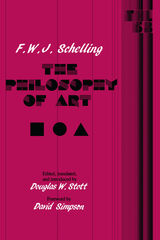
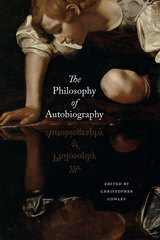
Cowley and his contributors show that while philosophers have seemed uninterested in autobiography, they have actually long been preoccupied with many of its conceptual elements, issues such as the nature of the self, the problems of interpretation and understanding, the paradoxes of self-deception, and the meaning and narrative structure of human life. But rarely have philosophers brought these together into an overarching question about what it means to tell one’s life story or understand another’s. Tackling these questions, the contributors explore the relationship between autobiography and literature; between story-telling, knowledge, and agency; and between the past and the present, along the way engaging such issues as autobiographical ethics and the duty of writing. The result bridges long-standing debates and illuminates fascinating new philosophical and literary issues.
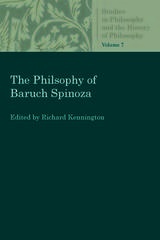
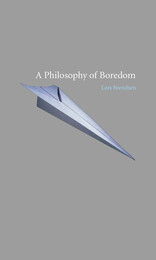
Lars Svendsen brings together observations from philosophy, literature, psychology, theology, and popular culture, examining boredom's pre-Romantic manifestations in medieval torpor, philosophical musings on boredom from Pascal to Nietzsche, and modern explorations into alienation and transgression by twentieth-century artists from Beckett to Warhol. A witty and entertaining account of our dullest moments and most maddening days, A Philosophy of Boredom will appeal to anyone curious to know what lies beneath the overwhelming inertia of inactivity.
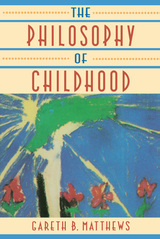
So many questions, such an imagination, endless speculation: the child seems to be a natural philosopher--until the ripe old age of eight or nine, when the spirit of inquiry mysteriously fades. What happened? Was it something we did--or didn't do? Was the child truly the philosophical being he once seemed? Gareth Matthews takes up these concerns in The Philosophy of Childhood, a searching account of children's philosophical potential and of childhood as an area of philosophical inquiry. Seeking a philosophy that represents the range and depth of children's inquisitive minds, Matthews explores both how children think and how we, as adults, think about them.
Adult preconceptions about the mental life of children tend to discourage a child's philosophical bent, Matthews suggests, and he probes the sources of these limiting assumptions: restrictive notions of maturation and conceptual development; possible lapses in episodic memory; the experience of identity and growth as "successive selves," which separate us from our own childhoods. By exposing the underpinnings of our adult views of childhood, Matthews, a philosopher and longtime advocate of children's rights, clears the way for recognizing the philosophy of childhood as a legitimate field of inquiry. He then conducts us through various influential models for understanding what it is to be a child, from the theory that individual development recapitulates the development of the human species to accounts of moral and cognitive development, including Piaget's revolutionary model.
The metaphysics of playdough, the authenticity of children's art, the effects of divorce and intimations of mortality on a child--all have a place in Matthews's rich discussion of the philosophical nature of childhood. His book will prompt us to reconsider the distinctions we make about development and the competencies of mind, and what we lose by denying childhood its full philosophical breadth.
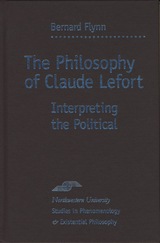
Much of what passes for political philosophy in our day is merely politicized philosophical concepts, a distinction author Bernard Flynn underscores as he describes the development of Lefort's truly political philosophy-its ideas formed in response to his own political experience and to the work of certain major figures within the tradition of political thought. Beginning with Lefort's most important single work, his book on Machiavelli, Flynn presents the philosopher's conceptions of politics, modernity, and interpretation in the context within which they took shape. He then draws on a wide variety of Lefort's works to explicate his notions of premodern and modern democracy in which totalitarianism, in Lefort's singular and highly influential theory, is identified as a permanent problem of modernity.
A valuable exposition of one of the most important Continental philosophers of the post-World War II period, Flynn's book is itself a noteworthy work of interpretive philosophy, pursuing the ideas and issues addressed by Lefort to a point of unparalleled clarity and depth.
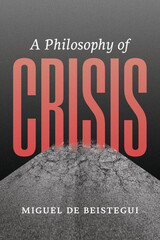
Crises abound—so many that it can be easy to lose perspective. In A Philosophy of Crisis, Miguel de Beistegui traces the intellectual development of ideas about crisis and identifies four distinct forms a crisis might take: crises of deviation, exception, contradiction, and extinction. Drawing on a range of examples (from economic crises to social uprisings, pandemics, and ecological devastation) and discourses (from ancient medicine to legal theory, political economy, philosophy, the earth sciences, and ecocriticism), A Philosophy of Crisis offers new conceptual tools for both understanding and avoiding the dangers of our crisis-saturated time.
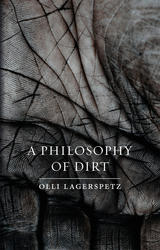
As participants in material culture, we not only produce things and dispose of them, but we also engage with them practically, aesthetically, and morally. Everything, in essence, comes back to dirt and waste. Ranging through subjects and times, from Heraclitus of Ephesus to the Renaissance (via Heidegger and Mary Douglas), from the hygienic products of modernity to abject art, Lagerspetz constantly questions current thinking on all subjects most foul. Proposing a new view of dirt based on our physical engagement with the world, A Philosophy of Dirt is essential reading for all students of philosophy and for anyone who’s felt soiled—and wants to know why.
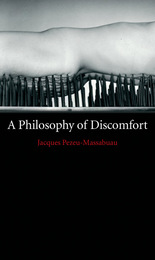
A hard chair. An embarrassing conversation. A mosquito bite. All these provoke in us a sense of discomfort, whether an irksome sensation or an experience of unpleasantness. While we normally define “discomfort” simply as a lack of comfort, it is unclear which came first—comfort or the lack of it.
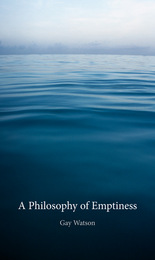
Digging through early and non-Western philosophy, Gay Watson uncovers a rich history of emptiness. She travels from Buddhism, Taoism, and religious mysticism to the contemporary world of philosophy, science, and art practice. Though most Western philosophies are concerned with substance and foundation, she finds that the twentieth century has seen a resurgence of emptiness and offers reasons why such an apparently unappealing concept has attracted modern musicians, artists, and scientists, as well as preeminent thinkers throughout the ages. Probing the idea of how a life without foundation might be lived—and why a person might choose this path—A Philosophy of Emptiness links these concepts to contemporary ideas of meditation and the mind, presenting a rich and intriguing take on the concept of emptiness and the history of thought.
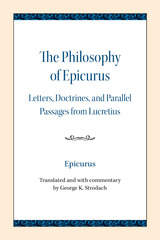
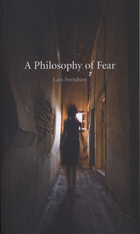
Svendsen delves into science, politics, sociology, and literature to explore the nature of fear. He examines the biology behind the emotion, from the neuroscience underlying our “fight or flight” instinct to how fear induces us to take irrational actions in our attempts to minimize risk. The book then turns to the political and social realms, investigating the role of fear in the philosophies of Machiavelli and Hobbes, the rise of the modern “risk society,” and how fear has eroded social trust. Entertainment such as the television show “Fear Factor,” competition in extreme sports, and the political use of fear in the ongoing “War on Terror” all come under Svendsen’s probing gaze, as he investigates whether we can ever disentangle ourselves from the continual state of alarm that defines our age.
Svendsen ultimately argues for the possibility of a brighter, less fearful future that is marked by a triumph of humanist optimism. An incisive and thought-provoking meditation, A Philosophy of Fear pulls back the curtain that shrouds dangers imagined and real, forcing us to confront our fears and why we hold to them.

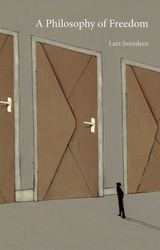
A Philosophy of Freedom questions how we can successfully create meaningful lives when we are estranged from the very concept of freedom. Svendsen tackles such issues as the nature of free agency and the possibility of freedom in a universe governed by natural laws. He concludes that the true definition of personal freedom is first and foremost the liberty to devote yourself to what really matters to you—to realize the true value of the life you are living. Drawing on the fascinating debates around the possibility of freedom and its limits within society, this comprehensive investigation provides an accessible and insightful overview that will appeal to academics and general readers alike.
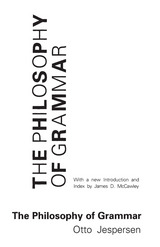
University in 1909-10, called “An Introduction to English Grammar.”
It is the connected presentation of Jespersen's views of the general
principles of grammar based on years of studying various languages
through both direct observation of living speech and written and
printed documents.
“[The Philosophy of Grammar and Analytic Syntax] set
forth the most extensive and original theory of universal grammar
prior to the work of Chomsky and other generative grammarians of the
last thirty years.”—Arne Juul and Hans F. Nielsen, in Otto
Jespersen: Facets of His Life and Work
“Besides being one of the most perceptive observers and original
thinkers that the field of linguistics has ever known, Jespersen was
also one of its most entertaining writers, and reading The
Philosophy of Grammar is fun. Read it, enjoy it.”—James D.
McCawley, from the Introduction
Otto Jespersen (1860-1943), an authority on the growth and structure
of language, was the Chair of the English Department at the University
of Copenhagen. Among his many works are A Modern English
Grammar and Analytic Syntax, the latter published by the
University of Chicago Press.
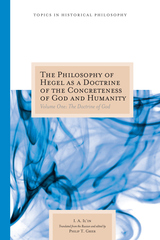
This landmark two-volume translation from Russian of The Philosophy of Hegel as a Doctrine of the Concreteness of God and Humanity marks the first appearance in English of any of the works of Russian philosopher Ivan Aleksandrovich Il’in (Ilyin). Originally published in 1918, on the eve of the Russian civil war, Il'in's commentary on Hegel marked both an apogee of Russian Silver Age philosophy and a significant manifestation of the resurgence of interest in Hegel that began in the early twentieth century.
A. F. Losev accurately observed in the same year it appeared: “Neither the study of Hegel nor the study of contemporary Russian philosophical thought is any longer thinkable without this book of I. A. Il’in’s.” Some Hegel scholars may know this work through the abridged translation into German that Il’in produced himself in 1946. However, that edition omitted most of the original volume two. Noted Hegel scholar Philip T. Grier’s edition—with an introduction setting Il’in’s work in its proper historical, cultural, and philosophical contexts and annotation throughout—represents the first opportunity for non-Russian-speaking readers to acquaint themselves with the full scope of Il’in’s still provocative interpretation of Hegel.
Volume 1 is "The Doctrine of God." Volume 2 is "The Doctrine of Humanity."
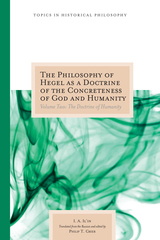
The publication of volume 2 of Philip T. Grier’s translation of The Philosophy of Hegel as a Doctrine of the Concreteness of God and Humanity completes the first appearance in English of any of the works of Russian philosopher I. A. Il’in (Ilyin).
Most of the contents of volume 2 will be unknown even to those who have read the 1946 German version prepared by Il’in, because in that version he omitted eight of the original ten chapters. These omitted chapters provide an extended reflection on the central categories of Hegel’s moral, legal, and political philosophies, as well as of the philosophy of history. The topics examined are, in order: freedom, humanity, will, right, morality, ethical life, personhood and its virtue, and the state. Contained within these chapters are some notably insightful expositions of core doctrines in Hegel’s philosophy.
Il’in’s colleague A. F. Losev accurately observed in the same year the text first appeared: “Neither the study of Hegel nor the study of contemporary Russian philosophical thought is any longer thinkable without this book of I. A. Il’in’s.”
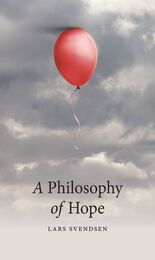
In this book Lars Svendsen embarks on a profound exploration of the nature of hope, asking what exactly hope is and how it differs from related phenomena such as wishful thinking. He argues that hope is rooted in the ability to shape one’s future, crucial for a society built on freedom instead of fear. Svendsen highlights hope’s vital role in giving life meaning, and its intimate connection to identity. He shows that, while hope cannot magically transform the world, it can empower individuals to focus on achievable goals rather than pressing challenges.
Ultimately, A Philosophy of Hope demonstrates the capacity of hope to propel both individuals and the world in a positive direction.
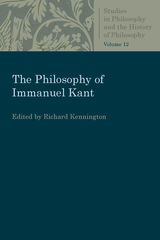
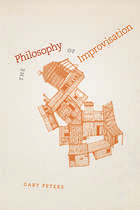
Improvisation is usually either lionized as an ecstatic experience of being in the moment or disparaged as the thoughtless recycling of clichés. Eschewing both of these orthodoxies, The Philosophy of Improvisation ranges across the arts—from music to theater, dance to comedy—and considers the improvised dimension of philosophy itself in order to elaborate an innovative concept of improvisation.
Gary Peters turns to many of the major thinkers within continental philosophy—including Heidegger, Nietzsche, Adorno, Kant, Benjamin, and Deleuze—offering readings of their reflections on improvisation and exploring improvisational elements within their thinking. Peters’s wry, humorous style offers an antidote to the frequently overheated celebration of freedom and community that characterizes most writing on the subject. Expanding the field of what counts as improvisation, The Philosophy of Improvisation will be welcomed by anyone striving to comprehend the creative process.
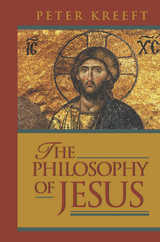
Amazingly, no one ever seems to have looked at Jesus as a philosopher, or his teaching as philosophy. Yet no one in history has ever had a more radically new philosophy, or made more of a difference to philosophy, than Jesus. He divided all human history into two, into "B.C." and "A.D."; and the history of philosophy is crucial to human history, since philosophy is crucial to man; so how could He not also divide philosophy?
This book (1) looks at Jesus as a complete human being (as well as divine), therefore also as a philosopher; (2) looks at philosophy as Jesus' pre-modern contemporaries did, as a wisdom, a world-view, and a way of life rather than as a super-science (Descartes, Hegel) or as a servant-science (Hobbes, Hume); and (3) looks at philosophy in light of Jesus rather than at Jesus in light of philosophy. It explores the consequences of Etienne Gilson's point that when St. John brought Christianity and Greek philosophy into contact and identified the Messiah the Jews had most deeply sought with the logos that the Greeks had most deeply sought, nothing happened to Christ but something happened to the logos.
This book explores the most radical revolution in the history of philosophy, the differences Jesus made to metaphysics (the philosophy of being), to epistemology (the philosophy of knowing), to anthropology (the philosophy of man), and to philosophical ethics and politics.
And, besides, it has the greatest ending of any philosophy book in a century.
Contents
Introduction 1: Who Is It For?
Introduction 2: How Is Jesus a Philosopher?
Introduction 3: What Are the Four Great Questions of Philosophy?
I. Jesus’ Metaphysics (What is real?)
* Jesus’ Jewish Metaphysics
* Jesus’ New Name for God
* The Metaphysics of Love
* The Moral Consequences of Metaphysics
* Sanctity as the Key to Ontology
* The Metaphysics of “I AM”
II. Jesus’ Epistemology (How do we know what is real?)
III. Jesus’ Anthropology (Who are we who know what is real?)
IV. Jesus’ Ethics (What should we be to be more real?)
* Christian Personalism: Seeing “Jesus only”
* Jesus and Legalism
* Jesus and Relativism
* Jesus and the Secret of Moral Success
* Jesus and Sex
* Jesus and Social Ethics: Solidarity
* Jesus and Politics: Is He Left or Right?
Conclusion
Index
Peter Kreeft, Professor of Philosophy at Boston College, is author of over forty books, including two from St. Augustine’s Press, Socratic Logic and The Sea Within.
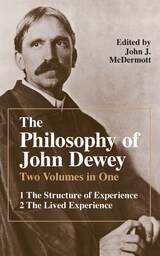
This edition combines in one book the two volumes previously published separately. Volume 1, "The Structure of Experience," contains essays on metaphysics, the logic of inquiry, the problem of knowledge, and value theory. In volume 2, "The Lived Experience," Dewey's writings on pedagogy, ethics, the aesthetics of the "live creature," politics, and the philosophy of culture are presented. McDermott has prefaced each essay with a helpful explanatory note and has written an excellent general introduction to the anthology.
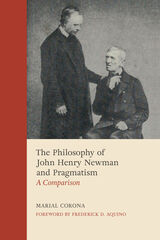
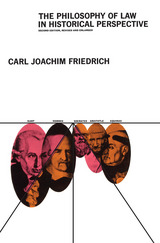
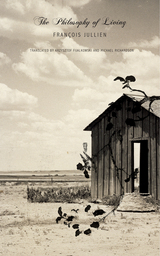
Living holds us between two places. It expresses what is most elementary—to be alive—and the absoluteness of our aspiration—finally living! But could we desire anything other than to live? In The Philosophy of Living, François Jullien meditates on Far Eastern thought and philosophy to analyze concepts that can be folded into a complete philosophy of living, including the idea of the moment, the ambiguity of the in-between, and what he calls the “transparency of morning.” Jullien here develops a strategy of living that goes beyond morality and dwells in the space between health and spirituality.
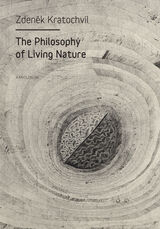
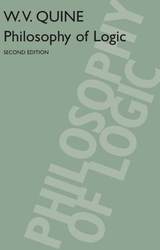
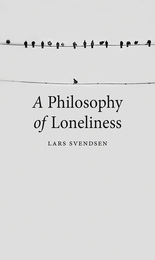
Drawing on the latest research in philosophy, psychology, and the social sciences, A Philosophy of Loneliness explores the different kinds of loneliness and examines the psychological and social characteristics that dispose people to them. Svendsen looks at the importance of friendship and love, and he examines how loneliness can impact our quality of life and affect our physical and mental health. In a provocative move, he also argues that the main problem in our modern society is not that we have too much loneliness but rather too little solitude, and he looks to those moments when our loneliness can actually tell us profound things about ourselves and our place in the world. The result is a fascinating book about a complex and deeply meaningful part of our very being.
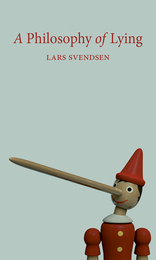
From popular philosopher Lars Svendsen, this book is a comprehensive investigation of lying in everyday life. What exactly is a lie, Svendsen asks, and how does lying differ from related phenomena, such as “bullshit” or being truthful? Svendsen also investigates the ethics of lying—why is lying almost always morally wrong, and why is lying to one’s friends especially bad? The book concludes by looking at lying in politics, from Plato’s theory of the “noble lie” to the Big Lie of Donald Trump.
As phrases like “fake news” and “alternative facts” permeate our feeds, Svendsen’s conclusion is perhaps a surprising one: that, even though we all occasionally lie, we are for the most part trustworthy. Trusting others makes one vulnerable, and we will all be duped from time to time. But all things considered, Svendsen contends, truthfulness and vulnerability are preferable to living in a constant state of distrust.
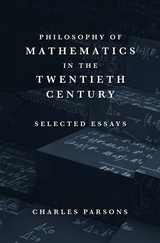
In this illuminating collection, Charles Parsons surveys the contributions of philosophers and mathematicians who shaped the philosophy of mathematics over the course of the past century.
Parsons begins with a discussion of the Kantian legacy in the work of L. E. J. Brouwer, David Hilbert, and Paul Bernays, shedding light on how Bernays revised his philosophy after his collaboration with Hilbert. He considers Hermann Weyl’s idea of a “vicious circle” in the foundations of mathematics, a radical claim that elicited many challenges. Turning to Kurt Gödel, whose incompleteness theorem transformed debate on the foundations of mathematics and brought mathematical logic to maturity, Parsons discusses his essay on Bertrand Russell’s mathematical logic—Gödel’s first mature philosophical statement and an avowal of his Platonistic view.
Philosophy of Mathematics in the Twentieth Century insightfully treats the contributions of figures the author knew personally: W. V. Quine, Hilary Putnam, Hao Wang, and William Tait. Quine’s early work on ontology is explored, as is his nominalistic view of predication and his use of the genetic method of explanation in the late work The Roots of Reference. Parsons attempts to tease out Putnam’s views on existence and ontology, especially in relation to logic and mathematics. Wang’s contributions to subjects ranging from the concept of set, minds, and machines to the interpretation of Gödel are examined, as are Tait’s axiomatic conception of mathematics, his minimalist realism, and his thoughts on historical figures.

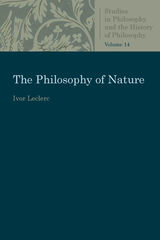

This volume of Reiner Schürmann’s lectures unpacks Nietzsche’s ambivalence towards Kant, in particular positioning Nietzsche’s claim to have brought an end to German idealism against the backdrop of the Kantian transcendental-critical tradition. Rather than simply compare the two philosophers, Schürmann’s lectures help us to understand the consequences Nietzsche derived from Kantian concepts, as well as the wider horizon within which Nietzsche’s ideas arose and can best be shown to apply. According to Schürmann’s trenchant reading: if Nietzsche was indeed “fatal” to Western philosophy, as he claimed, he was so in large part because of the Kantian transcendental thinking from which he inherited the very elements and tools of his criticism.
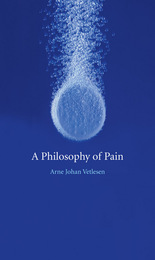
“Living involves being exposed to pain every second—not necessarily as an insistent reality, but always as a possibility,” writes Arne Vetlesen in A Philosophy of Pain, a thought-provoking look at an inevitable and essential aspect of the human condition. Here, Vetlesen addresses pain in many forms, including the pain inflicted during torture; the pain suffered in disease; the pain accompanying anxiety, grief, and depression; and the pain brought by violence. He examines the dual nature of pain: how we attempt to avoid it as much as possible in our daily lives, and yet conversely, we obtain a thrill from seeking it.
Vetlesen’s analysis of pain is revealing, plumbing the very center of many of our most intense and complicated emotions. He looks at pain within different arenas of modern life such as family and work, and he specifically probes at a very common modern phenomenon, the idea of pushing oneself to the limit. Engaging throughout with the ideas of thinkers such as Søren Kierkegaard, Sigmund Freud, Martin Heidegger, Jean-Paul Sartre, Maurice Merleau-Ponty, Max Horkheimer, Theodor Adorno, Alice Miller, Susan Sontag, and Melanie Klein, A Philosophy of Pain asks which came first, thinking or feeling, and explores the concept and possibility of empathy.
Vetlesen offers an original and insightful perspective on something that all of us suffer and endure—from a sprained ankle to a broken heart. Although pain is in itself unpleasant, our ability to feel it reminds us that we are alive.

The Philosophy of Parochialism is Radomir Konstantinović’s (1928–2011) most celebrated and reviled book. First published in Belgrade as Filosofija palanke in 1969, it attracted keen attention and controversy through its unsparing critique of Serbian and any other nationalism in Yugoslavia and beyond. The book was prophetic, seeming to anticipate not only the bloody disintegration of Yugoslavia in the 1990s, but also the totalitarian turn in politics across the globe in the first decades of the new century. With this translation, English-speaking audiences can at last discover one of the most original writers of eastern European late modernism, and gain an important and original perspective into contemporary politics and culture in the West and beyond. This is a book that seems to age in reverse, as its meanings become deeper and more universal with the passage of time.
Konstantinović’sbookresists easy classification, mixing classical, Montaigne-like essay, prose poetry, novel, and literary history. The word “philosophy” in the book’s title refers to the solitary activity of reflection and critical thinking, and is also paradoxical: according to the author, a defining characteristic of parochialism is precisely its intolerance toward this kind of self-reflexivity. In Konstantinović’s analysis, parochialism is not a simply a characteristic of a geographical region or a cultural, political, and historical formation—these are all just manifestations of the parochial spirit as the spirit of insularity. His book illuminates the current moment, in which insularity undergirds not only ethnic and national divisions, but also dictates the very structure of everyday life, and where individuals can easily find themselves locked in an echo chamber of social media. The Philosophy of Parochialism can help us understand better not only the dead ends of ethnic nationalism and other atavistic ideologies, but also of those cultural forces such as digital technologies that have been built on the promise of overcoming those ideologies.
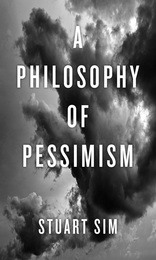
Stuart Sim starts with the proposition that pessimists simply have a more realistic world view. Tracing how pessimism has developed over time and exploring its multifaceted nature, he shows that many thinkers throughout history—including philosophers, theologians, authors, artists, and even scientists—have been pessimists at heart, challenging us to face up to the desperations that define human existence. Spanning cultures and moving across eras, he assembles a grand discourse of pessimism. Ultimately he offers the provocative argument that pessimism should be cultivated and vigorously defended as one of our most useful and ever-relevant dispositions.
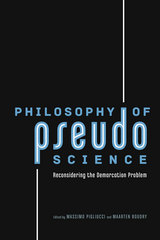
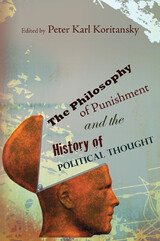
For the last half century, the philosophical debates over punishment have been deadlocked at two schools of thought: Utilitarianism and Retributivism. In his introduction, Koritansky provides an overview of the stymied debate by analyzing H. L. A. Hart’s argument for a philosophy unifying the theories of Utilitarianism and Retributivism. While Koritansky allows that both theories have contributed substantially to the contemporary understanding of punishment, he points out that Hart’s lack of success in combining these theories proves that both are less than ideal. From this starting point, Koritansky urges transcendence from these two theories in order to respond to new developments and circumstances surrounding the enactment of punishment today.
Conveniently divided into three sections, the book explores pagan and Christian premodern thought; early modern thought, culminating in chapters on Kant and classic Utilitarianism; and postmodern thought as exemplified in the theories of Nietzsche and Foucault. In all, the essays probe the work of Plato, Saint Augustine, Saint Thomas Aquinas, Thomas Hobbes, Immanuel Kant, Cesere Beccaria, Jeremy Bentham, John Stuart Mill, Friedrich Nietzsche, and Michel Foucault.
These essays devoted to the philosophy of punishment from the perspective of political thought delve deep into key contributions from thinkers of all eras to help further debates on punishment, provide the history of political thought in order to trace changes and effects on future theories, as well as expose the roots of the two prevailing schools of thought. This collection will engage all social scientists interested in the issue of punishment and energize the ongoing debate surrounding this complex issue.

Authoritative and accessible, this book is a concise and comprehensive introduction to the philosophy of religion. It shows how philosophers have used the tools of philosophy to examine the validity of religious ideas and values.
Distinguished North American, British, and Australian authors explain how philosophers of the past and present have approached key concepts of religious faith: Does God exist? Can God’s existence be proved? If so, what might God be like? Is there life after death? Is faith in an unseen God rationally tenable at all in a post-Enlightenment, postmodern, scientific age in which different faith traditions coexist and make claims to the ownership of eternal truths?
This book is an essential reader and reference for scholars, teachers, and students of religion and for anyone who seeks to answer key questions challenging the life of faith today.
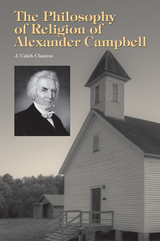
The Philosophy of Religion of Alexander Campbell reintroduces readers to Campbell as a philosopher of religion and explores the philosophical basis for the views underlying his religious movement. It begins with a highly readable discussion of Campbell’s role in antebellum American religion and proceeds to an exploration of his philosophical influences. J. Caleb Clanton then reconstructs, explains, and evaluates Campbell’s philosophy of religion. He critically examines Campbell’s unique, revealed-idea argument for the existence of God—that is, if God did not exist, we could not form the distinct idea of God. Clanton goes on to explore Campbell’s defense of miracles, including the resurrection of Christ, and his responses to the problem of evil and the problem of divine hiddenness. The final and most speculative chapter collects and synthesizes from scattered writings Campbell’s view on morality and religion— namely that there is no morality without God—which has proven difficult to defend on philosophical grounds.
With this book, the author makes a unique and important contribution to the literature of the Stone-Campbell movement. Clanton presents Campbell’s views strictly in philosophical terms and evaluates them from a philosophical perspective without regard to religious apologetics. In doing so, he illuminates previously unexplored dimensions of Campbell and his work, both historically and theologically, and clearly validates Campbell’s inclusion in contemporary discussions of the philosophy of religion.
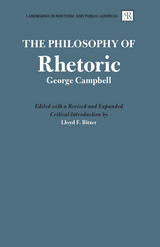
Bitzer shows that, by attempting to elaborate a general theory of rhetoric through empirical procedures, Campbell’s project reveals the limitations of his method. He cannot ground all statements empirically and it is at this point that his theological position comes into play. Inspection of his religious views shows that God’s design of human nature, and God’s revelations to humankind, make moral and spiritual truths known and quite secure to human beings, although not empirically.
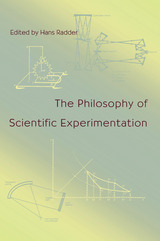
Since the late 1980s, the neglect of experiment by philosophers and historians of science has been replaced by a keen interest in the subject. In this volume, a number of prominent philosophers of experiment directly address basic theoretical questions, develop existing philosophical accounts, and offer novel perspectives on the subject, rather than rely exclusively on historical cases of experimental practice.
Each essay examines one or more of six interconnected themes that run throughout the collection: the philosophical implications of actively and intentionally interfering with the material world while conducting experiments; issues of interpretation regarding causality; the link between science and technology; the role of theory in experimentation involving material and causal intervention; the impact of modeling and computer simulation on experimentation; and the philosophical implications of the design, operation, and use of scientific instruments.
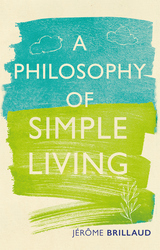

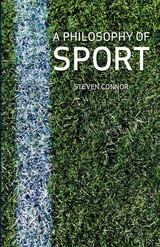

Harvard University Press takes pride in publishing the third edition of a work whose depth, scope, and wisdom have gained it international recognition as a classic in its field. Harry Austryn Wolfson, world-renowned scholar and most lucid of scholarly writers, here presents in ordered detail his long-awaited study of the philosophic principles and reasoning by which the Fathers of the Church sought to explain the mysteries of the Trinity and the Incarnation.
Professor Wolfson first discusses the problem of the relation of faith and reason. Starting with Paul, who, differentiating between the wisdom of God and the wisdom of the world, averred that he was not going to adorn his teachings with persuasive arguments based on the wisdom of the world, Professor Wolfson describes the circumstances and influences which nevertheless brought about the introduction of philosophy into matters of faith and analyzes the various attitudes of the Fathers towards philosophy.
The Trinity and the Incarnation are Professor Wolfson’s next concern. He analyzes the various ways in which these topics are presented in the New Testament, and traces the attempts on the part of the Fathers to harmonize these presentations. He shows how the ultimate harmonized formulation of the two doctrines was couched in terms of philosophy; how, as a result of philosophic treatment, there arose with regard to the Trinity the problem of three and one and with regard to the Incarnation the problem of two and one; and how, in their attempts to solve these problems, the Fathers drew upon principles which in philosophy were made use of in the solution of certain aspects of the problem of the one and the many. In the final part of this volume, entitled “The Anathematized,” he deals with Gnosticism and other heresies which arose during the Patristic period with regard to the Trinity and the Incarnation.

Harry Wolfson was renowned throughout the world for the depth, scope, and wisdom of his monumental volumes on the structure and growth of philosophic systems from Plato to Spinoza. It was not only his extraordinary erudition that commanded respect, his awesome mastery of all the primary sources, Greek, Christian, Judaic, and Muslim; it was also his penetrating insight and his original and groundbreaking interpretations.
In this long-awaited volume, on which he worked for twenty years, Wolfson describes the body of doctrine known as the Kalam. Kalam, an Arabic term meaning "speech" and hence "discussion," was applied to early attempts in Islam to adduce philosophic proofs for religious beliefs. It later came to designate a system of religious philosophy which reached its highest point in the eleventh century; the masters of Kalam, known as Mutakallimum, were in many respects the Muslim equivalent of the Christian Church Fathers. Wolfson studies the Kalam systematically, unfolding its philosophic origins and implications and observing its repercussions in other religions. He scrutinizes the texts of Muslim writers for their treatment of such crucial problems as the attributes of God, the Creation, causality, predestination and free will. In the process he shows how the teachings of the Koran were constantly interwoven with ideas from Greek and Oriental philosophies, Judaism, and Christianity as Islamic thought developed.
As lucidly written and intellectually stimulating as all the author's earlier books, this volume is a fitting capstone to a notable career.
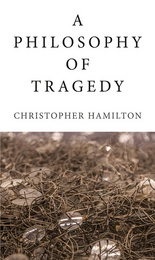
Christopher Hamilton examines the works of philosophers, writers, and playwrights to offer a stirring account of our tragic condition, one that explores the nature of philosophy and the ways it has understood itself and its role to mankind. Ranging from the debate over the death of the tragedy to a critique of modern virtue ethics, from a new interpretation of the evil of Auschwitz to a look at those who have seen our tragic state as inherently inconsolable, he shows that tragedy has been a crucial part of the modern human experience, one from which we shouldn’t avert our eyes.
READERS
Browse our collection.
PUBLISHERS
See BiblioVault's publisher services.
STUDENT SERVICES
Files for college accessibility offices.
UChicago Accessibility Resources
home | accessibility | search | about | contact us
BiblioVault ® 2001 - 2024
The University of Chicago Press









